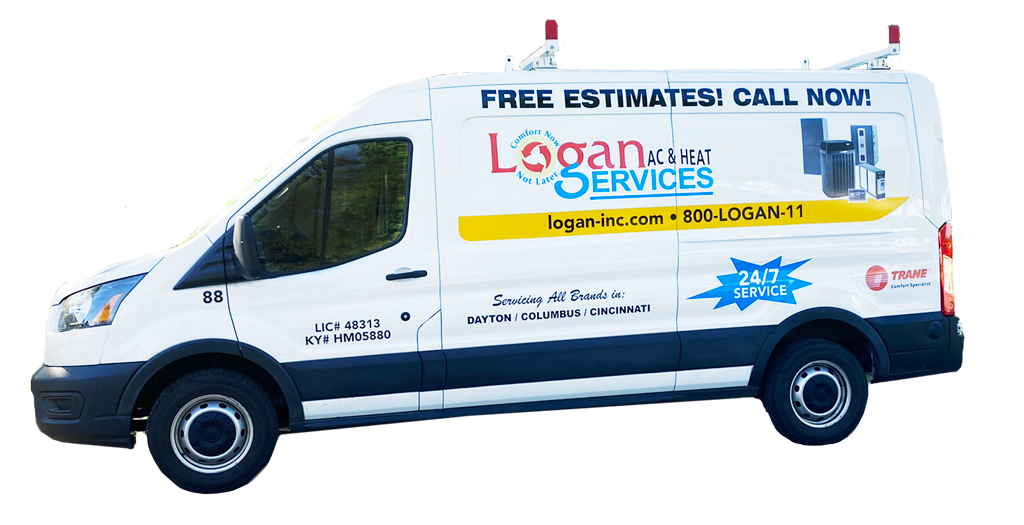Heat pumps are crucial to maintaining home comfort, and they must function efficiently to offer maximum benefits. Like any complex system, they require regular maintenance and service to deliver optimum comfort and efficiency over their lifespan. Keep reading to learn all about heat pump repair services and how they benefit homeowners.
Why Proper Heat Pump Service Matters
The expert technicians who install and maintain heat pump systems are tasked with ensuring several key performance objectives:
- Responsiveness: the ability to quickly reach and maintain desired indoor temperatures
- Efficiency: operating with maximum output while conserving electricity
- Capacity: effectively heating or cooling a home even in extreme conditions
- Air quality: proper humidity levels and ventilation
- Reliability: functioning consistently across many years of use
A dip in these areas often indicates a need for professional attention. Heat pump services encompass a wide array of tasks like cleaning, repairs, refrigerant charging, upgrades, and complete replacements when units grow obsolete.
Types of Heat Pumps and Their Service Requirements
Heat pumps utilize different technologies to transfer thermal energy between indoor and outdoor air. The three main varieties used in homes each come with unique maintenance needs and upgrade capabilities during professional service calls:
Air Source Heat Pumps
The most common heat pump variety circulates the refrigerant through exterior coils and a fan to transfer outdoor heat inside. Annual maintenance involves:
- Checking refrigerant levels and topping off as needed
- Clearing debris, leaves, and dirt from external coils
- Replacing air filters
- Cleaning blower components
- Testing heating/cooling response
- Converting between heating and cooling modes
Technicians can also install upgraded cold-climate heat pumps suited for frigid northern winters.
Geothermal Heat Pumps
Geothermal units harness warmer underground temperatures by circulating water or antifreeze solution through pipes buried deeply in the earth or a nearby pond/lake. Needed services include:
- Annual water quality testing
- Cleaning/replacing clogged filters
- De-scaling piping over time
- Checking buried looping piping for leaks
- Verifying proper flow levels year-round
Ductless Mini-Split Heat Pumps
Mini-split systems increasingly warm or cool individual rooms using components integrated directly into wall or ceiling casings. They are among the most reliable heat pump varieties, rarely necessitating repairs beyond:
- Diagnosing and addressing error codes
- Adjusting refrigerant charge
- Modifying backup electric heating
- Reconfiguring improper thermostat settings
While the diagnostic intricacies vary between heat pump classifications, annual maintenance appointments allow technicians to tune any unit type for peak heating/cooling performance. Keeping up with service needs specific to your home’s system provides reliable, energy-efficient comfort year after year.
Warning Signs Your Heat Pump Needs Servicing
While manufacturers provide general maintenance guidelines, homeowners should watch for certain red flags indicating that professional attention is needed.
These include:
- Higher electric bills combined with unsatisfactory heating/cooling function
- Unusual noises like banging, grinding, or gurgling sounds
- New burning or oil smells around the outdoor unit
- Frost buildup on the external fan housing
- Frequent cycling on/off without reaching set temperature
- Some rooms are uncomfortably warmer/cooler than others
- Malfunction error codes appearing
Left unchecked, small issues degrade into more substantial problems over time. Routinely investing in heat pump maintenance and upgrading heat pumps not only improves comfort but helps avoid emergency breakdowns.
Benefits of Routine Maintenance
Regular maintenance keeps heat pumps operating at peak efficiency for years longer than neglected units. HVAC technicians utilize appointments to fine-tune components that deteriorate gradually over time.
Investing in annual system check-ups provides multiple advantages:
- Cleaning indoor coils, filters, and drains prevent accumulation that restricts airflow and strains energy-intensive compressors. Keeping fins on outdoor coils clear boosts heat transfer capabilities as well. Such efforts enhance efficiency.
- Lubricating parts and ensuring proper refrigerant levels reduces friction and strain on components. This prevents minor defects from cascading into major, costly breakdowns.
- Inspecting and servicing issues promptly extend the operating life of the entire heat pump system. Well-maintained units typically last for 15-20 years.
- Upkeeping maintenance records is required under manufacturers’ warranty policies. Qualified tune-ups assure coverage for expensive compressor repairs.
The small price of routine care pays off down the road. Homeowners reduce expensive seasonal utility bills and emergency repairs by investing in regular maintenance. Keeping complex heating and cooling systems finely tuned maximizes energy-saving capabilities for years on end.
Efficiency Enhancements with Service Upgrades
Beyond routine tasks like cleaning and repairs, service appointments present energy saver opportunities to upgrade equipment for better performance. Homeowners increasingly invest in innovations that trim energy consumption.
Common upgrade options include:
- Smart thermostats with wi-fi connectivity help monitor and tightly regulate temperatures in houses that are frequently unoccupied. Units quickly adjust to maximize comfort when occupants return home as well.
- Separate zoned control systems divide homes into different areas with independent heat/AC management. This ensures steady, even temperatures house-wide.
- Variable speed air handler fan motors, compressors, and pumps use sophisticated inverter technologies to finely adjust capacity output instead of simply turning fully on or off. This reduces energy-wasting cycles and shortens run times.
- Sealing ductwork eliminates leaks and wasting cooled or heated supply air before reaching rooms. Insulation wraps fight external heat transfer as well. Such handiwork by technicians ensures efficient airflow.
- Upgrading older units to higher SEER-rated systems brings greater heat transfer capabilities through modern compressor designs and heat exchanger materials like coated copper.
While swapping dated appliances for newer high-efficiency equipment represents the single largest energy-saving option for homeowners, small upgrades performed during routine heat pump servicing accumulate substantial savings, too. Investing in zoned control methods, sealing leaky ducts, and swapping outdated components offer easier, affordable efficiency boosts over time. Paired with improved insulation and smart controls, such upgrades keep homes exceptionally comfortable, using minimal energy resources for years on end.
The Logan Difference
When homeowners in Dayton, Columbus, Cincinnati, and the surrounding area need expert heating and cooling services for heat pumps, only one company has 50+ years of experience enhancing home comfort—locally-owned Logan A/C & Heat Services. Founded in 1969, our NATE-certified technicians offer maintenance, repairs, and upgrades consumers can trust across all top equipment brands.
Beyond employing skilled staff, Logan prioritizes customer relationships as highly as technical capabilities. Our employees treat every client like family. We take the time to explain issues and solutions so that you clearly understand what services we recommend and why. Our technicians aim to educate clients on how their heating and cooling systems work so households can make informed decisions about priorities to keep their homes comfortable for years to come.
As the region’s premier Trane, Mitsubishi, and Rheem authorized dealer, we leverage partnerships with these leading manufacturers to optimize heat pump performance. Homeowners enjoy greater reliability, reduced utility bills, and a comfortably conditioned living environment year after year due to our handiwork.
Contact our team today to learn more about Logan’s diverse HVAC services. Discover the Logan difference for your home comfort needs!
Frequently Asked Questions
What tasks are typically performed during a heat pump service appointment?
Standard maintenance tasks may include cleaning coils and filters, inspecting connections, testing pressures, adding refrigerant, inspecting airflow across coils, evaluating indoor/outdoor unit performance, adjusting components, and lubricating parts.
How often should I have my heat pump serviced?
Most heat pump manufacturers recommend undergoing at least annual maintenance check-ups prior to seasonal changes. Units subjected to heavy use may benefit from biannual service for optimal performance and longevity.
What are signs I may need to schedule service for my heat pump?
Indications your heat pump requires service include decreased cooling or heating output, odd noises (e.g., hissing, grind, bangs), frequent cycling on and off, frost accumulation on the outdoor unit, error codes on your thermostat, spikes in your electric bills, or rooms/home feeling uncomfortably hot or cold.

















